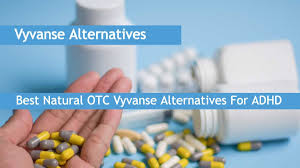According to Dr. Keith Conners the “father” of ADHD, ADHD diagnoses are alarmingly exaggerated. It is alarming that stimulant medication is prescribed inappropriately in ADHD treatment. People of all ages diagnosed with ADHD are most often treated by medication. In 2010, the National Institute of Mental Health reported that 69.3% of children and adults diagnosed with ADHD took ADHD medication.17 However, many people with ADHD are reluctant to take daily medications.
There have not been any long-term studies conducted on methylphenidate’s effects in adults. In rat studies, the cerebellum showed signs of neurodegeneration after just three weeks. What you should know about ADHD, and what alternatives you might find to medication that work.
What is ADHD?
The Diagnostic Statistical Manual defines ADHD as a set of symptoms. A positive diagnosis can be based on certain symptoms, which may be difficult to evaluate without a detailed assessment protocol. Some of the symptoms.
What is the cause of ADHD?
There is no “cause” of ADHD. Researchers hypothesize that hyperactivity and attention issues could be related to lower levels of brain activity in the attention-controlling area.
How else can you treat ADHD?
Amphetamines can be addictive and have negative effects on health. In addition, their long-term effects are not well studied. There are other ways to treat ADHD symptoms without medications.
What are the alternatives to ADHD medications? We have compiled a comprehensive list of holistic ADHD treatments.
- Parents’ and Children’s Behavior Training
Behavioral interventions can be used to treat a child with ADHD. Behavioral interventions teach children to manage their emotions while identifying and changing any problematic behaviors. This training can be conducted with parents, teachers, and therapists.
Parents can use the skills they learn from behavior training to help their ADHD-afflicted children achieve success and cope with symptoms.
Behavioral training can include attention skills, organizational skills, social skills, etc. These skills help them learn how to manage their emotions and behave appropriately.
- Cognitive Behavioral Therapy
CBT is an approach to therapy that explores thoughts, feelings, and causes. CBT is an effective form of therapy for treating a variety of psychological disorders, including depression and anxiety. Treatment of ADHD symptoms among children and adults has become more common.
Many professionals recommend CBT to children and adults with difficulty controlling their emotions. It can be used with other treatment methods, like behavior training.
Elimination Diets
Diet eliminations are a good way to see if eliminating a food group or certain foods from your diet will have a positive effect on your health. Elimination diets are often used to detect food allergies. They can be used to identify triggers for your ADHD symptoms. When environmental or dietary conditions increase hyperactivity, it can be difficult for someone to perform basic tasks.
Omega Supplements
Many foods, including fish and plants, contain omega fatty acids. Eicosatetraenoic acid (EPA) and docosahexaenoic acid (DHA), two common fatty acid types that support brain function, are both found in many foods. Researchers say that these fatty acids are vital for brain health.
What is the best ADHD medication?
Some people are afraid of the side effects. There is no “best” or “safest” medication to treat ADHD. Stimulants can also cause some unwanted side effects.
What is the best non stimulant treatment for ADHD?
Atomoxetine, a new non-stimulant ADHD medication, is available. Both adults and children can be prescribed this medication. Atomoxetine Extended Release is active for up 16 hours. This is a much longer duration than previous ADHD medications. Other side effects can include aggression, hostility, and agitation. Other symptoms can include suicidal thoughts, slow growth and appetite, sleep disorders, and more. These medications can cause irritability, stomach pain, and other side effects.
What can I do to focus on ADHD?
With professional assistance, you can learn how to manage your symptoms without medication. These include CBT, behavior training, elimination diets, and other options. You can make these treatments more effective by using some simple strategies at home.
Exercise Regularly
Exercise is recommended to treat almost all health issues. There are many benefits. Exercise has been proven to improve concentration, memory, and stamina in ADHD patients. Some people have reported that exercise improves impulse control.
Create a Healthy Diet
Brain function is also affected by healthy eating. As previously stated, people with ADHD had lower Omega-3 fatty acid levels. Certain foods can trigger ADHD symptoms. Focus can be improved by eating a diet that is tailored to your nutritional needs.
Start Small
It can be difficult to focus when you have ADHD. It’s important to start small. Set yourself goals, such as dedicating a specific amount of time each day to reading or focusing on something that you like for a specified period. While increasing your attention span, practice coping with the way you feel. People with ADHD who have been diagnosed with success use measures such as hiding their phones or setting deadlines for homework or work to help them focus. Your goals will also be different because everyone is unique.
In the end, medication isn’t the only way to treat ADHD. Each person diagnosed with ADHD or experiencing ADHD-like symptoms will find their unique combination of habits, diet, professional therapy, and other factors that work for them. There are many options available to you if you want an alternative medication.
Contact a professional if you’re looking for alternatives to ADHD medication. We know that medication may not be the best solution for everyone.
